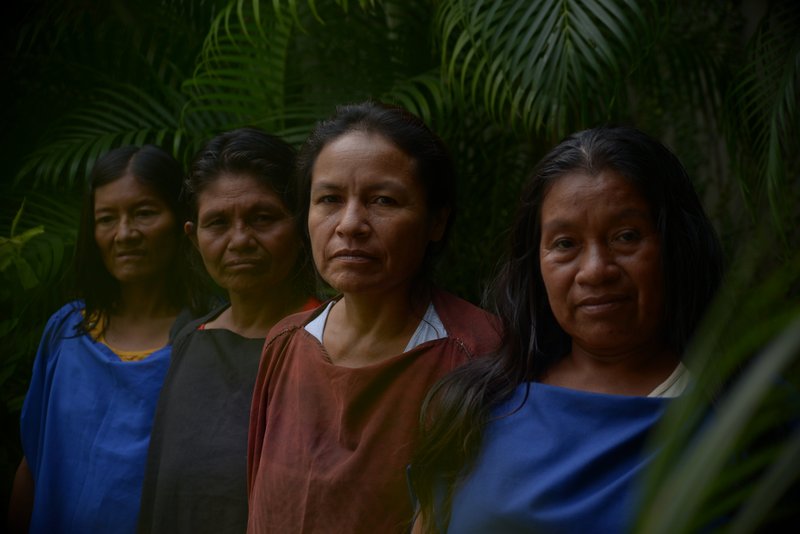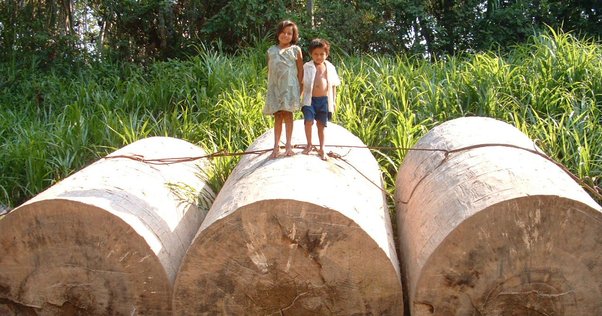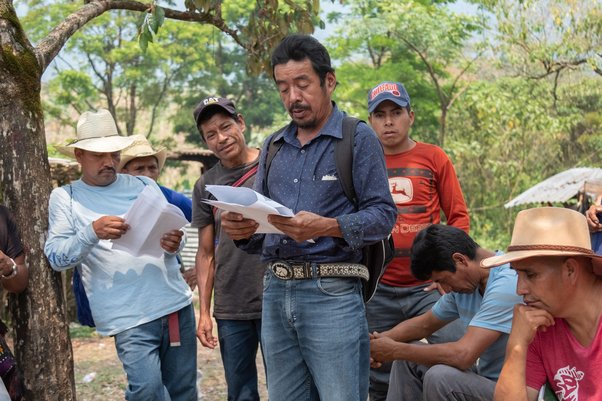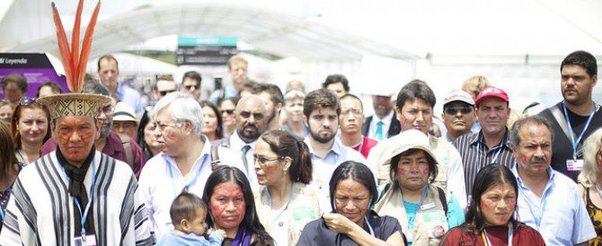Just months after a historic 28-year sentence was issued, the widows of four murdered Indigenous Saweto leaders were back to square one - forced to go once again through the ordeals of a criminal trial.
It had taken more than eight years to secure justice for the victims of a brutal massacre. The 28-year sentence issued to the men convicted by the Peruvian Supreme court in February 2023 was truly historic. But just months later, the widows of four murdered Indigenous Saweto leaders were suddenly back to square one, forced to go once again through the ordeals of a criminal trial.
In September 2014, Edwin Chota Varela, Leoncio Quintísima Meléndez, Jorge Ríos Pérez, and Francisco Pinedo Ramírez of the Alto Tamaya Saweto community were murdered while travelling to meet with other Indigenous leaders across the Peruvian border in Brazil. They had spent years documenting and denouncing illegal logging in the Amazon’s Ucayali region and had filed complaints with the regional and national governments showing how timber mafias were encroaching on their ancestral lands.

Adelina Vargas, Lita Rojas, Julia Pérez, and Ergilia Rengifo (from left to right) have been seeking justice for their murdered husbands for nearly a decade. Pablo Sánchez / LVU
In February this year, more than eight years after their murders, five of the alleged perpetrators – all illegal loggers – received a 28-year prison sentence following relentless advocacy from the Saweto community and their support network. With impunity all too often reigning in cases of defender murders, this was a truly significant ruling.
But just six months later, the sentences were unexpectedly overturned. The decision sparked outrage across the country – with even the Minister of the Environment, Albina Ruiz, calling on the authorities for justice.
On 2 November, a new set of court hearings began. Beyond the security, logistical, and financial implications, this hellish experience for the relatives of the four leaders is forcing them to relive the deaths of their loved ones and the years that followed in detail. And, again, they will have total uncertainty about what the proceedings will bring – this time with added anguish over the fairness of the proceedings. Already less than a week since the start of the trial, the Court has issued arrest warrants for two of the accused who failed to turn up to court.
I’m getting old and I don’t see justice… We are the ones protecting the forest, and it hurts me that others come from abroad to steal our resources.
Questions over safety have also been raised, including by Lita Roja, the widow of Leoncio Quintísima, who has spoken out about the risks she and others face, which become more acute during legal proceedings. These include the dangers of traveling to Pucallpa, where the hearings take place, and danger for the relatives who stay back home.
I’m tired, I had to leave my children back home who are sick to come here to seek justice.
We remain concerned for the security of the four Saweto widows, as well as the lawyers and witnesses who have repeatedly reported receiving threats, including they claim from relatives of the alleged killers wanting revenge on the Saweto community for pursuing justice. Oscar Romero, the lawyer who represented the victims in the previous trial, spoke of death threats the widows received, urging the state to include them in witness protection programmes.
This case clearly shows how dangerous Peru is for land and environmental defenders and their relatives - particularly for Indigenous peoples. Since 2012, we’ve recorded at least 54 killings of land and environmental defenders in the country. More than half of those killed were Indigenous peoples. And these attacks are relentless; just months ago, on 4 September, an Asháninka leader - Abner Campos Santo – was attacked in an attempt against his life during a mission to report illegal logging in Puerto Bermúdez, Oxapampa. It is no coincidence that these communities are in resource rich areas, with more than 75% of the Peruvian Amazon covered by oil and gas concessions.
While Indigenous communities in Peru are disproportionately targeted and attacked, this is also the case all over the world. In 2022, more than a third of all land and environmental defenders killed worldwide were Indigenous peoples. These attacks continue to happen while they are at the forefront of the protection of our planet (including more than 80% of the world’s biodiversity), with deforestation rates at least 50% lower in Indigenous territories.
In a bitter-sweet victory, following the tragic killings of the Saweto leaders the Alto Tamaya Saweto community gained full recognition of rights over their lands. As of 2016, over 80,000 hectares are now legally theirs.
But attacks against Indigenous peoples are not easily forgotten - and have long-lasting effects on communities. Since the murders, many members of the Saweto community have been pushed from their land following threats and growing fear of retaliation. Those who chose to stay say they are now afraid to lead forest conservation efforts.
The failure of the state to fully ensure justice in this case continues to send a fatal message – harming both people and the environment. While the 28-year sentence could have marked a historic turning point, it has instead become a tragically missed opportunity.
Concrete action must be taken for the protection of not just the Alto Tamaya Saweto community but of Indigenous communities across Peru. While the Peruvian government has signed the Escazú agreement - a regional agreement that includes specific provisions on the protection of environmental defenders - Congress is yet to ratify this. We urge them to implement this agreement and provide protection for Indigenous defenders - and to help ensure that fatal attacks against defenders like that of the Saweto leaders can never happen again.
As a new trial gets underway, it is paramount that justice for the victims - and their families and communities - prevails.
Read this page in


